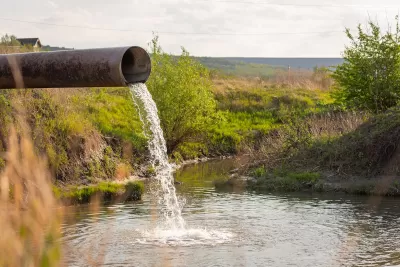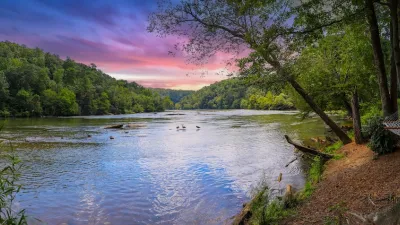A suit brought by the city of San Francisco argues that the agency’s language around water treatment and discharge is too vague and imposes retroactive penalties.

The U.S. Supreme Court appears poised to limit the Environmental Protection Agency (EPA)’s powers to set water quality standards for sewage and water treatment systems, according to an article by Michael Macagnone in Roll Call.
The case stems from a challenge by the city of San Francisco. “The case turns on how specific the EPA must be in National Pollutant Discharge Elimination System permits it issues under the environmental protection law. Currently, the permits place restrictions on both what San Francisco and others can discharge from their pipes and the quality of the water where the discharge goes.”
The city argues that the broad language in the EPA’s rules is too vague and faults the city for water quality failures that could be caused by other parties. “Dozens of organizations, ranging from the mining industry to homebuilders and farmers weighed in through court filings to argue that the EPA standards leave them guessing over whether they’ll face fines down the road.” Biden administration lawyer Frederick Liu countered that many of the requirements San Francisco calls ‘unfair’ are “actually obvious, like not allowing the water to become discolored.”
As Macagnone points out, “The case is the first in a series of cases this term where the justices agreed to hear challenges to environmental rules, and comes amid the current court’s long-running effort to rein in administrative agencies.”
FULL STORY: Supreme Court questions EPA water pollution permit powers

Planetizen Federal Action Tracker
A weekly monitor of how Trump’s orders and actions are impacting planners and planning in America.

Maui's Vacation Rental Debate Turns Ugly
Verbal attacks, misinformation campaigns and fistfights plague a high-stakes debate to convert thousands of vacation rentals into long-term housing.

Cuomo Is the Candidate of Both NIMBYs and Developers. What Gives?
In the New York City mayoral race, odd bedfellows align to preserve the housing status quo.

The Subversive Car-Free Guide to Trump's Great American Road Trip
Car-free ways to access Chicagoland’s best tourist attractions.

San Antonio and Austin are Fusing Into one Massive Megaregion
The region spanning the two central Texas cities is growing fast, posing challenges for local infrastructure and water supplies.

Charlottesville Temporarily Has No Zoning Code
A judge ordered the Virginia city to throw out its newly revised zoning code, leaving permitting for new development in legal limbo.
Urban Design for Planners 1: Software Tools
This six-course series explores essential urban design concepts using open source software and equips planners with the tools they need to participate fully in the urban design process.
Planning for Universal Design
Learn the tools for implementing Universal Design in planning regulations.
Heyer Gruel & Associates PA
JM Goldson LLC
Custer County Colorado
City of Camden Redevelopment Agency
City of Astoria
Transportation Research & Education Center (TREC) at Portland State University
Jefferson Parish Government
Camden Redevelopment Agency
City of Claremont





























